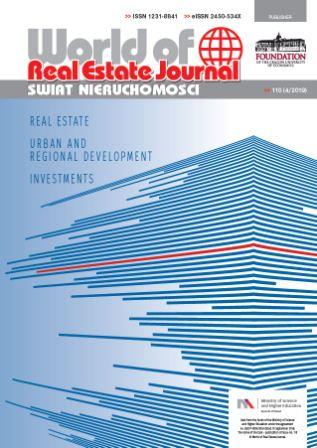Geographical Allocation in Investments of German Open-Ended Real Estate Funds: Does Expectation Impact Country Allocations?
Geographical Allocation in Investments of German Open-Ended Real Estate Funds: Does Expectation Impact Country Allocations?
Author(s): Bernhard FunkSubject(s): Economic policy, International relations/trade, EU-Approach / EU-Accession / EU-Development, Financial Markets
Published by: Fundacja Uniwersytetu Ekonomicznego w Krakowie
Keywords: real estate funds; asset allocation; Brexit; investment strategy;
Summary/Abstract: Purpose: The article looks at the geographical allocation of real estate investments from German open-ended funds over the recent years. The purpose is to identify changes in geographical allocation within four main European target countries. The main focus is to investigate whether German open-ended real estate funds really located investments from the UK to other countries due to the expectations of the exit from the European Union as triggered by the poll in the United Kingdom in the year 2016. Therefore, the main target of the study is to examine if the preemptive “BREXIT-expectation-effect” can be found in data. Methods: Based on the theoretical framework considering the role of expectations as found in economic theory, the realised changes in the country-specific portfolio allocations of German open-ended funds are compared to investor sentiment voiced in the immediate Brexit-poll-phase. Findings: The article finds that, contrary to common belief, the Brexit poll from 2016 has not caused fund and portfolio managers from German open-ended real estate funds to significantly diminish holdings in the United Kingdom in favor of holdings in other European countries that may appear beneficiaries of Brexit. It furthermore shows that allocations to the United Kingdom have increased at the time after the Brexit poll in the year 2016. The time span of the research cannot grasp the post-Brexit execution period, as this is too early to research, given the current postponement of BREXIT execution till January 2020. Research implications: The research shows that fund and portfolio managers adapt their allocations much more cautiously compared to expectations, more relying on actual fundamental economic data and investment opportunities in business cycles than on common sentiment.
Journal: Świat Nieruchomości
- Issue Year: 4/2019
- Issue No: 110
- Page Range: 5-14
- Page Count: 10
- Language: English

